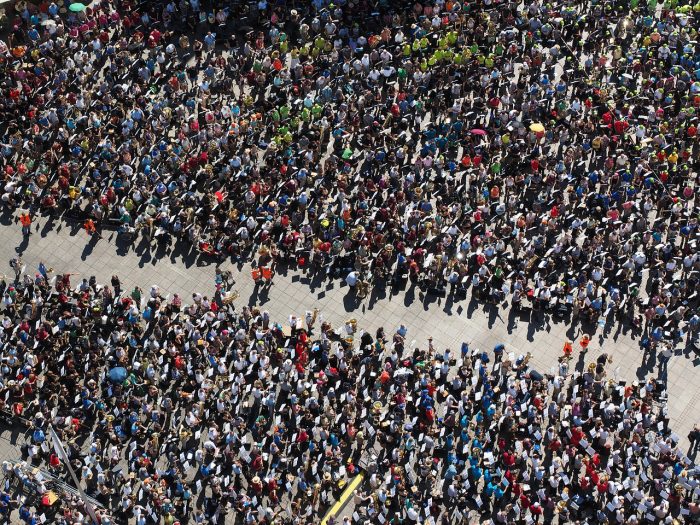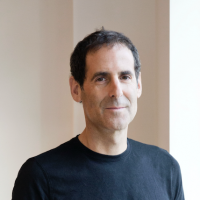Check out Elephant’s Continually-updating Coronavirus Diary. ~ Waylon
~
I wish we were all in this together.
The platitudes of COVID-19 being the “great equalizer,” is actually far from the truth. It’s not only shining a light on inequalities of our society, but it’s creating even deeper fault lines.
“Free Michigan, Free Colorado, Free America.”
“Don’t tread on me.”
The toxic sovereignty masquerading as liberty is rampant. Right versus left, masks versus no masks, science versus stories, real news versus fake news, open/closed, free/locked down. This is America now. Our expertise in corrosive division shines bright. And this divide will yield real and painful dividends.
As the country prematurely opens up, the lack of Federal coordination combined with the eroding courage of our Governors is painful to witness. Further, governments at all levels are basically saying, “No smoking on the plane. Well, except for the back. And okay, the front. Aaaand maybe a few spots in the middle. Wellll actually, smoking is now just ‘discouraged.’ So breathe at your own risk.” It’s like having a peeing section in the swimming pool.
So where are we headed? I could say we don’t know. But we actually have a pretty good idea. The data shows that we will be in this battle for a long time. My grandmother was famous for closing her eyes and stepping on the gas when she was in a precarious driving situation. But she was lucky and would mostly make it through a near-accident unscathed. It’s precisely what’s happening here. We are turning away from the data, rationalizing that the economy is more important than the lives of older and more vulnerable sectors of our population, and stepping on the gas. The problem is that there are oncoming cars, cliffs, and other dangers in this analogy.
So here’s the stark truth—we are each on our own. This is a “choose your own adventure” moment. Do you want to shelter at home? Or do you want the opposite? Will you wear a mask not just for yourself, but to protect the vulnerable? Or are you one of the ones who will choose to “shake off the proverbial shackles of freedom and do what Americans should do, which is live out our liberties dammit!”
Are you someone who circulates debunked and misleading videos of Bakersfield, California doctors saying that the data shows lower death rates and that quarantining is the exact wrong thing to do? Or do you spend time defaming Dr. Fauci, and other medical experts, so as to sow the seeds of doubt and denial around data and science? Or will you show up in a way that your friends, families, neighbors, and other fellow humans are cared for, regardless of whether or not the mask you wear looks cool?
I realize that our decisions are complicated, and often poorly informed. That we are in the midst of memetic and narrative warfare. And that our collective sense-making has gone haywire. Thus we will be forced to have to choose the blue pill or the red pill in the absence of clarity and being able to separate the signal from the noise. As a result, we are entering into a massive experiment. Multiple fragile systems are cracking and crackling around the edges and, when merged with erroneous heuristics, result in confusion and questionable choice-making. Absent a vaccine, we are in a herd-immunity experiment by default. And when combined with a lengthy and lethargic dialing up of the economic rheostat, our new normal will likely be cloudy with a chance of meatballs.
Let’s tease this apart for a moment and look at Sweden. Pulling from a recent New York Times article on Sweden’s approach, we don’t know what total population percentage would be necessary to reach Sweden’s herd immunity goal. It could be as high as 80 percent of the population. Even if we had perfect knowledge of the Swedish case, there are huge risks with copying the strategy in a country like the United States. The American people are far less healthy than Swedes. They have significantly higher rates of diabetes and hypertension, two of the most-risky underlying conditions. Four out of every 10 Americans are obese. A herd immunity strategy in America would mean that many of these people would be on some form of lockdown for many more weeks, most likely months.
But we know this will not be acceptable. How many of these vulnerable people will do this if they value liberty and the economy over health? Or…how many of their family members or friends that they are in contact with, will be out and about, having selected the red pill, and bring the virus to them? This is part of the unknown.
And from an economic standpoint, turning the proverbial dimmer up includes opening high-density attractions including restaurants, gyms, cruise ships, and more. This will generate many questions. What will the agoraphobia-effect be? How much of the economy will truly open up again? How many of the 30 million unemployed will be able to find work again as this drags on and on, and on? Looking at Sweden again, keeping its economy “open” wasn’t enough to spare Sweden a recession. In fact, the Swedish economy is shrinking just as rapidly as its neighbors.
Conversely, we look at a country like South Korea, which did the opposite of Sweden. A recent article in New York Magazine shows Seoul’s response to the novel coronavirus was about as successful as any other government’s. Robust testing and containment measures kept South Korea’s COVID-19 death toll under 300. And its economy is now outperforming those of all the other G7 countries. But its economy is still shrinking—and not merely because of reduced demand for its exports in harder-hit nations. South Korea’s “nonmanufacturing” business confidence index (BSI), which covers its service sector, just fell to its lowest point since the BSI’s creation in 2003.
So if we look at all countries from an economic standpoint, no one will really be safe from a recession. But countries who held firm on quarantining and lockdowns have, thus far, saved considerable lives. Meaning we are fooling ourselves when we worship at the altar of GDP. Because here in America, it’s often more important than the church itself.
So what’s the silver lining here?
Maybe through all the praying inside the house of the almighty economy, we will be rewarded with a miracle of true herd-immunity, unlike anywhere else? Or maybe the relentless pursuit of capitalism, now stalled out, will force us to reexamine the underlying fragilities and externalized harm that’s been created? Maybe it’s that fossil fuel emissions will stay low and our ecosystems can get a bit of a break? Or maybe it’s that we will normalize all of this so it won’t feel so bad?
Or maybe, just maybe, we will learn a difficult lesson that the approaches we are taking now turned out to be abject failures. And that our children and grandchildren can look back at this and say, “Remember the ‘Great Coronavirus Depression’ of the 2020s? Aren’t we glad that we learned what not being courageous and caring can lead to?”
Yeah that’s it. Maybe that’s a good silver lining.
~


 Share on bsky
Share on bsky





Read 4 comments and reply